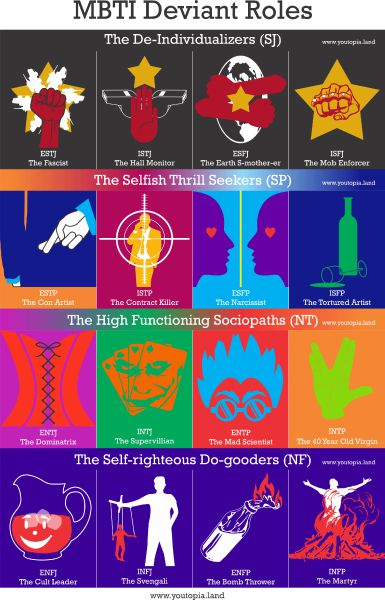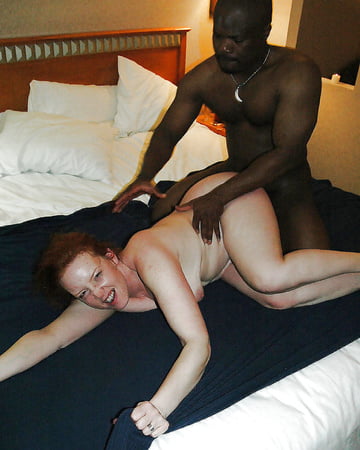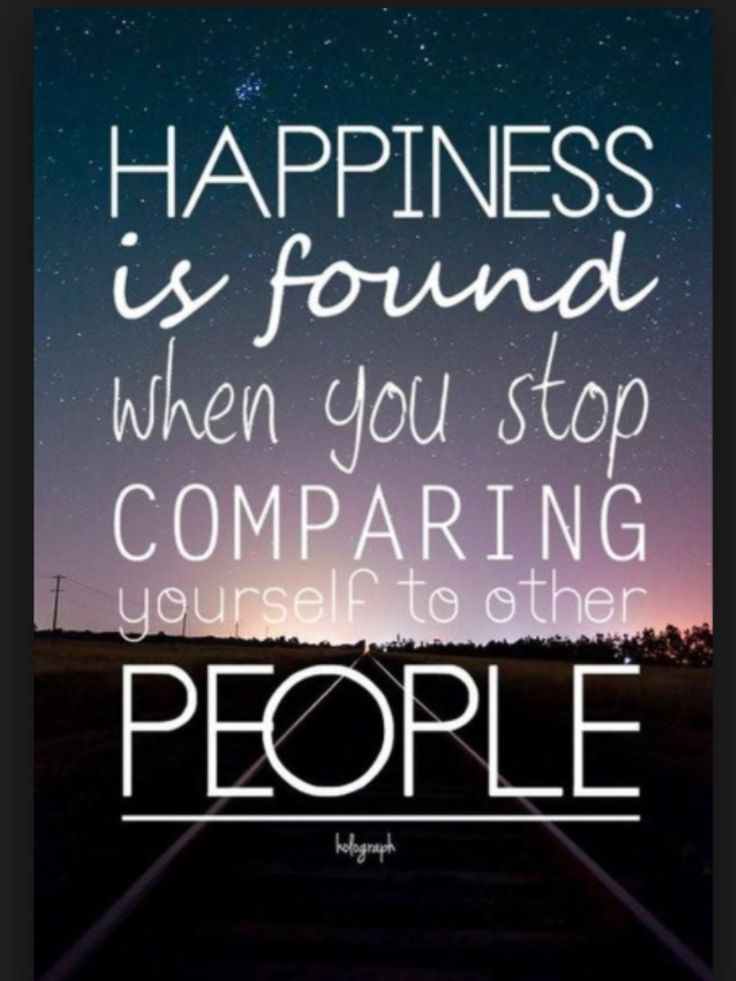Withholding affection as punishment
Withholding Affection for Punishment — Fischer Fragments
Not all forms of abuse are overtly obvious. Today I explore a form of emotional abuse that is centered around withholding affection as a form of punishment and control.
No relationship, whether professional, romantic, or platonic, is perfect. However, there are certain situations in relationships that are indicators of toxic issues that may be cause for the relationship’s termination. While obvious signs of abuse, such as hitting or name-calling, can be more evident to spot, other forms of abuse may not be immediately recognizable. One form of emotional abuse known as emotional withholding can silently erode relationships and cause emotional turmoil for the partner on the receiving end of the situation. Are you familiar with emotional withholding? Learn more about this toxic response to relationship stressors to avoid having it happen to you.
It’s natural to require validation. People often want to know that they please others, particularly those they care about. That is why we pay regular compliments to our loved ones, expressing our affection and admiration for the people we love so that they may know their importance to us. Emotional withholding, on the other hand, serves as a device to punish one’s partner by denying them the love and affection that is present in any healthy relationship. It can be a jarring thing to experience. One moment your partner is showering you with love and affection, but all of a sudden the tables turn, and you are faced with stonewalled rejection. Not only is the sudden lack of love jarring, but it can be deeply confusing.
Emotional withholding, also known as avoidant abuse, utilizes praise, affection, and presence as a weapon of control and punishment. The abuser withholds their affection at will to inflict pain on their partner, at times using this manipulation to control their partner’s behavior. To put this abuse into a scenario, one might be in a seemingly blissful relationship, but as soon as the person goes against their partner’s wishes or refuses to comply with their will, they will be hit with the cold shoulder until they comply with their partner’s wants. When emotional withholding occurs in relationships, sex and intimacy become weaponized, as the core foundation of a healthy relationship is used as a means to hurt someone. Rather than receive the approval and love that humans so innately crave, the abused party is made to feel as though they must “earn” love from their partner through doing and saying things that please the other person.
When emotional withholding occurs in relationships, sex and intimacy become weaponized, as the core foundation of a healthy relationship is used as a means to hurt someone. Rather than receive the approval and love that humans so innately crave, the abused party is made to feel as though they must “earn” love from their partner through doing and saying things that please the other person.
Why would someone stay with a partner who makes them feel so isolated and desolate? As with any case of the abused party choosing to remain in the relationship, it’s complicated. For one, abuse isn’t always easy to recognize. Even if you are experiencing abuse, it requires a lot of courage to be able to put a name to what is happening and even more courage to extract yourself from the situation. It becomes even more complicated, and at times might feel impossible, to exit a toxic situation if you have real feelings for your partner. On the other hand, humans naturally seek approval, so being denied such a core need can cause them to crave it even more, further driving them to please their partner and “win” back their love. Additionally, an aspect of abuse that many who haven’t experienced it don’t recognize is that it is cyclical. In order for the abuser to keep their partner in the relationship, they operate in a way that allows them to simultaneously hurt their partner and retain their commitment.
Additionally, an aspect of abuse that many who haven’t experienced it don’t recognize is that it is cyclical. In order for the abuser to keep their partner in the relationship, they operate in a way that allows them to simultaneously hurt their partner and retain their commitment.
Though emotional abuse and physical abuse do not always go hand-in-hand, the cycle of domestic violence is a relevant model to regard when considering emotional withholding. This three-part model includes the “building” phase, acute episode, and honeymoon phase. In the building phase, tension rises and grows within the abuser, resulting in the acute battering episode occurring in the second phase. The episodic violence occurs once tension peaks before often giving way to phase three, the honeymoon phase. In this phase, the abuser expresses remorse, minimizing the abuse that occurred and showering the victim in love, warmth, and affection in an attempt to compensate for what happened. This is often the phase that keeps victims involved in a dangerous relationship, as the abuser can be very convincing that they are truly apologetic and will not harm the victim again. Unfortunately, for those outside the cycle of abuse, it is not hard to see that once tension starts to mount again, the process will repeat itself.
Unfortunately, for those outside the cycle of abuse, it is not hard to see that once tension starts to mount again, the process will repeat itself.
Each relationship has its own particular factors, of course, so there is no one set cycle that can be applied to all forms of abuse. Emotional withholding, in particular, differs in some regards because it involves a lack of communication, meaning the abusing party likely won’t even apologize for their behavior let alone acknowledge it during the “honeymoon” phase. Instead, the emotional withholder will likely cycle between periods of extreme love and affection and complete emotional shutdown, leaving their partner feeling whiplashed by the severe change in emotional regard. Unfortunately, while the lows of abuse are nothing short of devastating, the highs can swing just as extreme. Holding on to the good memories can be enough to keep many in a toxic relationship, though eventually it will erode itself given enough time.
Though remaining in an abusive relationship is never advisable, especially since emotional abuse always runs the risk of escalating into something physical and possibly fatal, emotional withholding doesn’t necessarily have to spell the end of a relationship. Though realistically it isn’t likely that the abuser will recognize his or her toxic behavior, if the party is truly able to acknowledge the harm that they have caused and formulate a plan to prevent their behavior from repeating itself, then the relationship can potentially be salvaged. Tools such as cognitive behavioral therapy can help the abuser understand the way they act in order to help them formulate new responses to triggers and stressors. Unfortunately, when it comes to emotional withholding, since the abuse is difficult to pinpoint, it is unlikely the abuser will even recognize it is occurring. In this case, terminating the relationship is the only healthy choice.
Though realistically it isn’t likely that the abuser will recognize his or her toxic behavior, if the party is truly able to acknowledge the harm that they have caused and formulate a plan to prevent their behavior from repeating itself, then the relationship can potentially be salvaged. Tools such as cognitive behavioral therapy can help the abuser understand the way they act in order to help them formulate new responses to triggers and stressors. Unfortunately, when it comes to emotional withholding, since the abuse is difficult to pinpoint, it is unlikely the abuser will even recognize it is occurring. In this case, terminating the relationship is the only healthy choice.
The situational aspect that deserves the most attention is ensuring that the abused party feels safe and supported in their relationship and that they understand that they are not responsible for nor deserving of their partner’s toxic and cruel behavior. Emotional withholding is a very serious situation that can have longterm and lasting effects on a person.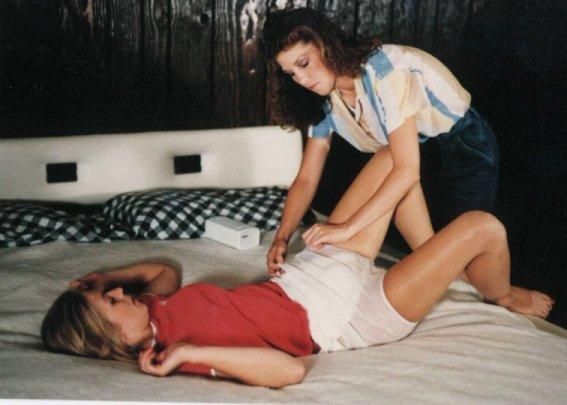 Emotional withholding can change who a person is, causing them to feel undervalued and lacking. Don’t allow yourself to be turned into a shell of who you once were due to the abuse of another. Recognize the way you are treated, and find a safe ground to stand up for yourself. Demand better treatment, or in most cases, learn how to walk away. If someone truly loves you, they will not use their love as a weapon of control.
Emotional withholding can change who a person is, causing them to feel undervalued and lacking. Don’t allow yourself to be turned into a shell of who you once were due to the abuse of another. Recognize the way you are treated, and find a safe ground to stand up for yourself. Demand better treatment, or in most cases, learn how to walk away. If someone truly loves you, they will not use their love as a weapon of control.
Could this be abuse? Don’t suffer in silence. Call the National Domestic Violence Hotline at 1-800-799-7233 or explore their online resources.
Are You Dealing With Emotional Withdrawal?
Posted on by Lori Jean Glass
Mark and Sharon used to seem like an ideal couple. They were madly in love and it seemed they would never have trouble communicating their feelings for one another. But then it happened: they hit a rough patch and it now seems that it will take nothing short of a miracle for them to get back on track and for things to go back to normal.
But then it happened: they hit a rough patch and it now seems that it will take nothing short of a miracle for them to get back on track and for things to go back to normal.
She feels he is distancing himself from her and becoming emotionally withdrawn, which is making her confused and causing her a great deal of emotional pain. All in all, it feels like they’re stuck at the point of no return, with a separation being the only viable option. Sharon recommended attending a couple relationship management workshop but Mark refused. She feels neglected and fears abandonment is what happens next.
What went wrong and who or what is to blame for the emotional intimacy issues? And is it possible for a couple in this situation to overcome emotional withdrawal and withholding?
What Is Emotional Withdrawal?
Being emotionally withdrawn basically means keeping your emotions bottled up. This can naturally take a toll on any relationship, especially a romantic one. Emotional withdrawal is typical of the avoidant attachment style.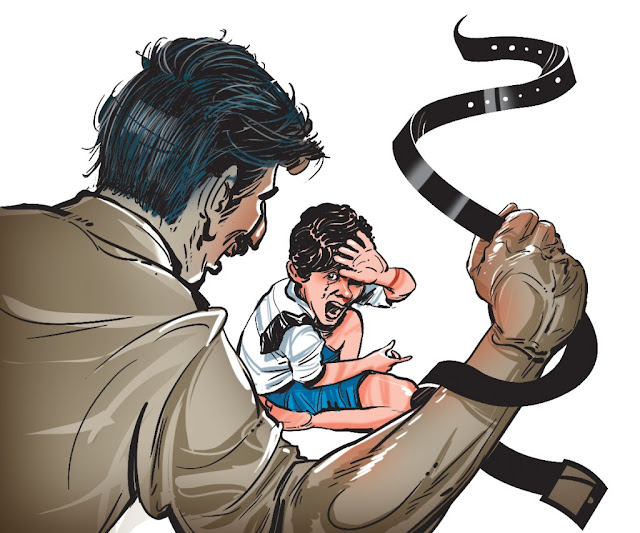
Your childhood experiences can affect your adult relationships. Being raised by emotionally distant or neglectful parents or caregivers can lead you to develop survival patterns you rely on to navigate emotional pain in adulthood. And when both you and your partner start to fall back on your own survival patterns, this can put a great deal of stress on the relationship.
What Is Emotional Withholding In Relationships?
Emotional withholding is a situation when a person uses their love and affection, praise or even their presence against their partner. It could be their way of staying in charge, avoiding humiliation or even hurting their partner, deliberately or not. It is important to understand that emotional withholding represents a type of emotional abuse that must be dealt with.
How To Deal With Emotional Withholding
Emotional withholding is a form of passive-aggressive behavior which qualifies as emotional abuse. Partners often resort to withholding affection as a form of punishing the other person even if they might not realize it. Giving someone the silent treatment or the cold shoulder, if you will, can cause a communication breakdown and irreparable damage to the relationship unless both partners are willing to work on resolving the underlying issues. As hackneyed as it may sound: communication is key.
Giving someone the silent treatment or the cold shoulder, if you will, can cause a communication breakdown and irreparable damage to the relationship unless both partners are willing to work on resolving the underlying issues. As hackneyed as it may sound: communication is key.
How To Deal With The Silent Treatment
Most of us have been there: you desperately want to have a heart-to-heart with your partner but they just give you the silent treatment. You’re banging your head against the wall trying to understand whether you did anything wrong. You are also willing to do everything in your power to resolve the issue but you feel you’re the only one who wants to work towards a resolution.
This can only be dealt with if both partners are willing to communicate. And that’s the thing: neither partner is supposed to be a mind reader. It is impossible for one partner to figure out what’s wrong unless they can establish communication.
How Do You Fix A Broken Relationship?
One way to facilitate this is to constantly seek alternative ways of working on their relationship. Partners can learn about themselves, about each other and ultimately build trust in a relationship intensive workshop, such as the ones we have at The Glass House.
Partners can learn about themselves, about each other and ultimately build trust in a relationship intensive workshop, such as the ones we have at The Glass House.
Aside from attending our 5-day workshop, you can also work with a PIVOT advocate separately or as a couple to help you heal. All of our programs are designed to accommodate the specific needs of every individual and guide them toward building intimacy in a relationship and developing healthy relationship patterns and coping skills.
How To Break Pursuer-Distancer Cycle
Back to Mark and Sharon and what they’re going through. Try this on for size.
Sharon: What’s wrong?
Mark: Nothing.
Sharon: Then why are you being like this?
Mark: Like what?
Sharon: You’re ignoring me all the time.
Mark: I’m not.
Sharon: You are and you know it. You’re doing it right now.
Mark: I have no idea what you’re talking about.
Sharon: Oh, I bet you don’t!
Mark: You’re overreacting.
Sharon: I’m so not!
Mark: I really can’t get into this right now.
Are you the pursuer or the distancer? In other words, are you Sharon or Mark? And how do you break the vicious circle?
When two people in a romantic relationship are having a hard time seeing eye to eye, they tend to misinterpret everything that the other person means to say, which could then push them further apart.
The pursuer is seen as needy and nagging, an impression made all the worse because of their growing frustration and uncontrollable tendency to criticize. They can’t help it because they are unable to shift perspectives. The distancer is seen as emotionally unavailable, cold and distanced, whereas, in reality, they are vulnerable and feel they are being treated in a way that is unfair.
How Do You Overcome Emotional Distance In A Relationship?
The pursuer-distancer cycle that is left unresolved turns into a pattern that the person is likely to repeat in every new relationship. But how do you bridge emotional distance? Here are some ideas you can use to resolve the situation:
But how do you bridge emotional distance? Here are some ideas you can use to resolve the situation:
- Learn to recognize recurring patterns that lead to conflict.
- Set up and stick to a conflict resolution plan.
- Stick to a single topic until it is resolved.
- Focus on togetherness and the ‘We’: We need to work this out.
- Get to know your own communication style and learn to tweak it.
- Learn to manage your emotions and not let negative emotions wash over you.
- Create an atmosphere of safety, trust and understanding.
- Find optimal ways to communicate: write each other letters if you have to.
Our Emotional Intimacy Coaching Can Help You Get Back On Track
Are you giving your partner the silent treatment? Or are you on the receiving end? Do you feel that you are responsible to smooth things over whenever someone is upset with you or is it your partner who is a people pleaser? So what can you do?
Taking simple steps like joining a relationship building skills workshop could ultimately be good for your own emotional development and for your relationship. It could help you learn how to shift perspectives and truly understand where the other person – in this case, your partner – is coming from. Call today and let us know what’s troubling you!
It could help you learn how to shift perspectives and truly understand where the other person – in this case, your partner – is coming from. Call today and let us know what’s troubling you!
neurodrugs against destructive attachment - T&P
Love is not always as good as they write about it in novels. It can cause not only euphoria and a feeling of closeness, but also the pain of loss, psychological trauma, and even provoke violence. And yet, from the point of view of the physiology of the brain, love, with all its sharp turns, ups and downs, is just a hormonal process, which can already be partially controlled now. A group of researchers from the University of Oxford published a scientific article on drugs that help cure passion, sympathy and affection. T&P tell the most important thing about the technology and ethics of the chemical interruption of love.
The desire to get rid of love seems to exist as long as love itself: in Ovid Nason, Titus Lucretius Kara, William Shakespeare and many other authors, one can find lines that this feeling can be like a disease. Destructive, deeply traumatic passion, jealousy, misunderstanding, loneliness and grief - all this can be the fruits of love, and we have met all this many times in literature, philosophy, drama and in our own lives. We know that problematic love is not only unrequited: the desire to stay close to a person prone to domestic violence, incestuous love, passion for the head of a cult, and sexual interest in minors also cause a lot of trouble, even if the person is able to refrain from acting.
Destructive, deeply traumatic passion, jealousy, misunderstanding, loneliness and grief - all this can be the fruits of love, and we have met all this many times in literature, philosophy, drama and in our own lives. We know that problematic love is not only unrequited: the desire to stay close to a person prone to domestic violence, incestuous love, passion for the head of a cult, and sexual interest in minors also cause a lot of trouble, even if the person is able to refrain from acting.
Attempts to “do something” with unnecessary passions have always been made: in different eras, people who fell in love unsuccessfully tried to be cured by bloodletting, sports exercises, a strict diet and prayer. And these means, unfortunately, did not always help. Love was then perceived as something firmly rooted in the body, but today we know that this is only partly true.
Eternal Sunshine of the Spotless Mind: Love Through the Eyes of the Brain
From a neurobiological point of view, love is a product of the brain, a complex neurobiological phenomenon that has evolved. It is based on the mechanics of trust, pleasure and rewards and is closely related to both the work of the cerebral cortex and the activity of the limbic system, which is located deep in the cranium and is one of the most ancient elements of the brain responsible for elementary survival reactions: “run” , "mate", "eat" and so on.
It is based on the mechanics of trust, pleasure and rewards and is closely related to both the work of the cerebral cortex and the activity of the limbic system, which is located deep in the cranium and is one of the most ancient elements of the brain responsible for elementary survival reactions: “run” , "mate", "eat" and so on.
Love, which can bring people together and keep them close to give birth and raise offspring, has been the basis for the survival of the species since prehistoric times. According to neuroscientist and anthropologist Helen Fisher and her research group at Rutgers University (New Jersey, USA), it relies on three neurophysiological subsystems that trigger sexual attraction, sympathy, and attachment. Sexual attraction, which comes on the scene first, pushes us to meet potential partners, sympathy allows us to choose the right one among them, and affection helps create a lasting bond and gives us the strength to cooperate with each other until parental duty is fulfilled.
The work of each of the three subsystems is based on the effects of hormones and neurotransmitters that are produced in our body. For example, sex drive is linked to estrogen and testosterone, sex hormones found in both men and women. The ability to appreciate someone's attractiveness is associated with the pleasure and stress hormones dopamine, serotonin, and adrenaline that allow us to focus attention on the object of attraction, mentally return to it again and again, and feel a pleasant revival in his presence. As for attachment, the neuromodulators oxytocin and vasopressin play the main role here. They instill in us a sense of peace and confidence and naturally push us into behaviors that are potentially relationship-friendly.
The problem is that all of these subsystems operate simultaneously, so that we may desire one potential partner, find another attractive, and maintain an ongoing relationship with a third. At the same time, the actions of the “components of love” cannot be called autonomous. For example, testosterone stimulates the production of vasopressin, which has a positive effect on the formation of attachment, and oxytocin affects the activity of dopaminergic pathways, linking attachment with attraction - so that the one who is closest becomes the most beloved.
For example, testosterone stimulates the production of vasopressin, which has a positive effect on the formation of attachment, and oxytocin affects the activity of dopaminergic pathways, linking attachment with attraction - so that the one who is closest becomes the most beloved.
Against lust: neurodrugs and antiandrogens
Scientists are sure that in the future doctors, psychotherapists and psychiatrists will have "neurodrugs" in their arsenal - highly effective synthetic modulators of brain activity - aimed at certain receptors in certain reflex arcs and able to help a person to cope with unwanted passion. Today there are no such drugs, but many drugs intended for completely different purposes suppress sexual desire as a side effect. For example, antidepressants - especially selective serotonin reuptake inhibitors - block the production of sex hormones. Libido is also reduced by painkillers with butalbital, opiates and other medications.
Court practice in the United States, Russia, Great Britain and other countries, as a punishment for sexual crimes against minors, uses a radical chemical castration procedure, in which antiandrogens block the androgen receptors of cells, interfering with the action of testosterone, as a result of which sexual desire disappears. Such drugs have side effects that can last a lifetime: increased bone fragility, obesity, etc.
Such drugs have side effects that can last a lifetime: increased bone fragility, obesity, etc.
From the point of view of human rights, chemical castration is today recognized as an extremely controversial procedure. There are examples in history when it has become a weapon of homophobia or has been misused. For example, the famous British mathematician, logician, cryptographer Alan Turing, who cracked the Enigma code of the Third Reich, at 19The 52nd agreed to chemical castration voluntarily in order to avoid imprisonment for his homosexuality. At that time in the UK, she was prosecuted and considered a mental disorder. As punishment, the "guilty" could choose chemical suppression of libido or prison. Turing preferred the former. Two years later, he died from cyanide poisoning, which many researchers consider a suicide.
Against sympathy: drugs for OCD
B 199In 9, a group of specialists led by neuroscientist Donatella Marazziti from the University of Pisa found that in the first months, love resembles obsessive-compulsive disorder (OCD). In both cases, study participants were worried about the smallest details and suffered from intrusive thoughts; in addition, doctors found changes in the work of transport proteins that move serotonin in them. The level of this protein and serotonin itself in all people was the same, but did not correspond to the norm. “This suggests that love in the literal sense of the word puts us in a state that cannot be called normal,” the experts noted. When, after 12–18 months, they again tested the lovers in the experiment, it turned out that their serotonin levels had returned to normal values, and the obsessive idealization of a partner (the ability to generate abstract and concrete mental displays of absent stimuli) disappeared.
In both cases, study participants were worried about the smallest details and suffered from intrusive thoughts; in addition, doctors found changes in the work of transport proteins that move serotonin in them. The level of this protein and serotonin itself in all people was the same, but did not correspond to the norm. “This suggests that love in the literal sense of the word puts us in a state that cannot be called normal,” the experts noted. When, after 12–18 months, they again tested the lovers in the experiment, it turned out that their serotonin levels had returned to normal values, and the obsessive idealization of a partner (the ability to generate abstract and concrete mental displays of absent stimuli) disappeared.
All this means is that OCD medications, roughly speaking, also help with excessive liking for the object of love. Patients with obsessions and compulsions respond well to treatment with selective serotonin reuptake inhibitors, which we know also suppress libido. Also, these antidepressants affect the release of dopamine, causing a decrease in euphoric moods that help form attachment. Selective serotonin reuptake inhibitors have another side effect that can affect romantic relationships: they reduce the ability to worry about other people's feelings. So taking this type of antidepressant reduces the risk of falling in love. For patients with depression, this is perhaps for the best, because falling in love, with all the pleasant sensations, is still a lot of stress.
Also, these antidepressants affect the release of dopamine, causing a decrease in euphoric moods that help form attachment. Selective serotonin reuptake inhibitors have another side effect that can affect romantic relationships: they reduce the ability to worry about other people's feelings. So taking this type of antidepressant reduces the risk of falling in love. For patients with depression, this is perhaps for the best, because falling in love, with all the pleasant sensations, is still a lot of stress.
Against Attachment: Dopamine Antagonists
Attachment and stress-reducing hormones vasopressin, oxytocin and dopamine are produced in humans and other monogamous mammals during touching, hugging, kissing, stroking, sex, orgasm, and breastfeeding. It is they who, in many ways, hold couples together, as well as mothers and their offspring. At the same time, oxytocin and vasopressin help form the system of signals necessary to successfully search for your partner or child among other creatures of the same species and gender (and as a result you can “know the sweetheart by the walk”), and dopamine is involved in the process of forming rewarding experiences: joy , tenderness, inspiration and others.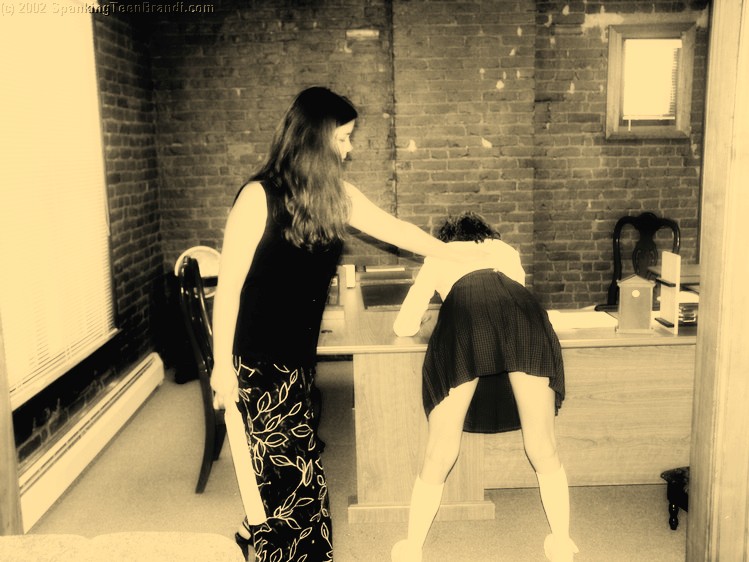
Scientists have found that direct injection of oxytocin into the brains of female gray voles and vasopressin into the brains of males of the same species makes it easier for the animals to form bonds, even during periods when they were not ready to mate. If the rodents received dopamine or oxytocin antagonists - drugs that block the corresponding receptors - they lost their tendency to monogamy and switched to short polygamous relationships.
Of course, it cannot be argued that the mechanism of formation of love attachment in humans is arranged in exactly the same way as in the gray vole, but there is a certain similarity between us. In addition, neuroscientists and anthropologists have been able to discover some interesting facts about love in numerous studies in recent years: in particular, that in terms of the pattern of dopamine production, it resembles cocaine addiction. Today, dopamine antagonists are used to treat it, which will also “help” from romantic attachment.
The Ethics of Refusal: An Individual Response
All this, of course, does not mean that love is an addiction, although from the point of view of the hormonal reward system in our brain, it works exactly like an addiction. After all, love has existed on the planet much longer than drugs, which simply use mechanisms designed for completely different purposes: maintaining interpersonal relationships, successfully raising offspring (own or adopted), and, ultimately, the evolution of both the species and the individual. And yet, love, to put it mildly, does not always lead to the latter, and instead of personal growth or parental success, it ends in a painful breakup, psychological or physical trauma, violence and murder. Can we "treat" severe cases chemically, or will trying to shield ourselves from unwanted emotions lead us into a dystopian world? There does not seem to be an unambiguous answer to this question, and in each case the decision must be individual. And yet, if imminent violence or death can be prevented, and the hopeless pain of loss can be downplayed, it is very easy to understand those who are ready to go for it.
Icons: 1) Gemma Garner, 2), 4) Luis Prado, 3) Juan Pablo Bravo, 5) Thomas Marijnissen.
How it is possible and how it is impossible to punish children - a comment by a psychologist
Every parent faces the question over and over again: how to punish a child for violating the boundaries of what is permitted, so that this punishment does not become an insult or psychological trauma, but a lesson that is so necessary for a growing person ?
It is certainly necessary to forbid a child some harmful or dangerous things, control his behavior and punish him for wrongdoing. The child must understand that in order for his choices and needs to be respected, he himself must respect other people and follow certain rules. Moreover, the punishment should not come as a surprise to the child - draw the line of what is permitted in advance and say the possible consequences of violating the prohibition, explain that the punishment is precisely the answer for the misconduct, and not the venting of your irritation and resentment.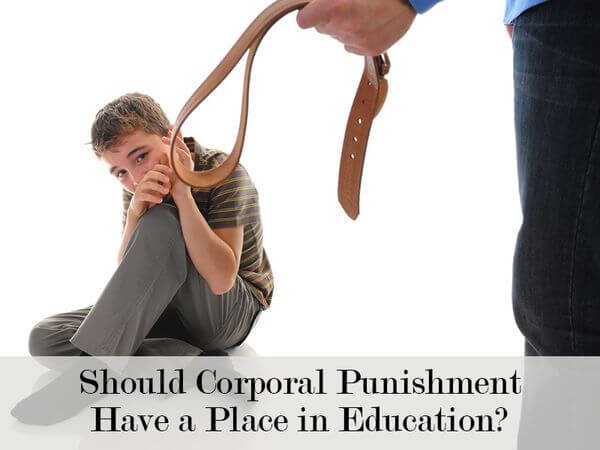
Punishment must always be appropriate to the offense and the age of the child. It is practically useless to punish a baby up to three years old - his "I" is only being formed, and he may simply not understand the connection between a misconduct and punishment, believing that he is being undeservedly offended, which means that he is not loved. But even for older children, not every punishment is suitable. If you do not want to destroy the trust and love between you and your child, or even develop serious neurological and psychological problems in him, some types of punishment must be refrained from.
What punishments are harmful to a child?
- Physical punishment and "forced labor"
It is unacceptable to use one's physical superiority over a child. This will violate his emerging personal boundaries, may undermine trust in you and the world, which carries threat and pain. Having divided people into aggressors and victims, in the future your child may well want to be in a position of strength, implementing a parental example of aggressive behavior and trying to resolve conflicts with violence and threats.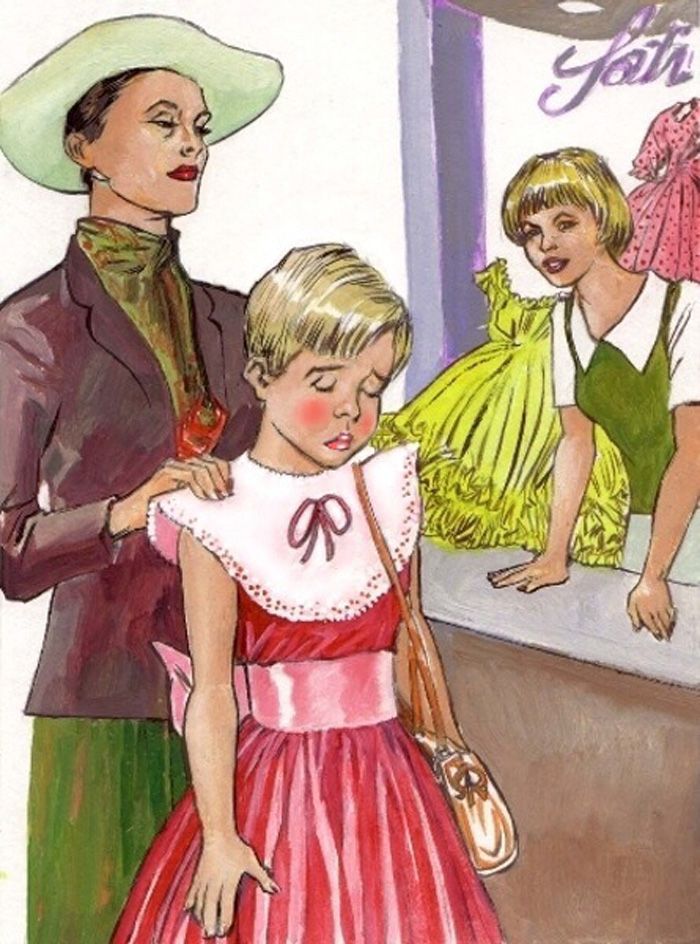 In addition, even "for educational purposes" it is unacceptable to deprive a child of what is necessary for development and life: food, sleep, clothing, etc. And punishment, say, with housework can most likely turn a child away from this activity - in his mind, it will become a duty.
In addition, even "for educational purposes" it is unacceptable to deprive a child of what is necessary for development and life: food, sleep, clothing, etc. And punishment, say, with housework can most likely turn a child away from this activity - in his mind, it will become a duty.
- Constant unreasonable nit-picking and ridicule, especially in front of strangers
Correct reasonable criticism, of course, is necessary when raising a child. But constant humiliation, insults, labeling, even "harmless" ridicule will negatively affect the child's self-esteem, because he builds it based on the parental attitude. If you tell your child over and over again that he is naughty, mischievous or stupid, then it is likely that, while shaping his personality, he will turn your opinion of him into reality. Do not devalue the hobbies, achievements and tastes of the child. Saying things like, "What nonsense are you wasting your time on" can not only permanently shut you out of your child's inner world, but also make him feel ashamed of himself. Low self-esteem leads to lack of initiative, loss of self-esteem and self-confidence, inability to insist on one's opinion. This can make your son or daughter suggestible, and then not only you, but also authoritative peers will begin to dictate to them what to do. And these will not always be good deeds - so teenagers, following the lead of their comrades, get into dangerous situations, break the law, join bad habits, unable to say: "No, I myself know how it will be better for me."
Low self-esteem leads to lack of initiative, loss of self-esteem and self-confidence, inability to insist on one's opinion. This can make your son or daughter suggestible, and then not only you, but also authoritative peers will begin to dictate to them what to do. And these will not always be good deeds - so teenagers, following the lead of their comrades, get into dangerous situations, break the law, join bad habits, unable to say: "No, I myself know how it will be better for me."
- Unnecessarily long punishments by loneliness or your silence
Not talking to a child for days, or even locking him in a room or, on the contrary, driving him out of the apartment onto the stairs - this is real psychological abuse. One open conversation will bring much more benefit than long days of defiant offended ignorance on your part. Deprivation of love, refusal to accept an apology is not only humiliating and painful - it can make a child think that he deserved punishment not for a specific offense, but for his character, because he is "incorrigible", "bad", "unnecessary". In some cases, such injuries can further lead to mental disorders: aggression, isolation, anxiety, depression. The child may begin to blame himself for all his failures, for the problems of his family.
In some cases, such injuries can further lead to mental disorders: aggression, isolation, anxiety, depression. The child may begin to blame himself for all his failures, for the problems of his family.
– Psychological manipulation
It is unacceptable to make parental love a "payment" for a child's good behavior and demand his obedience to gray hair. To pretend to be offended and sick, making the child feel ungrateful, is blackmail, which will give rise not to love, but to dislike and unwillingness to communicate with parents when the child grows up. Hyper-custody is also a way of manipulation - you can’t do all his affairs for the child, so that later he can be accused of incompetence.
It is not uncommon for parents to play on the child's need for their approval by comparing him to other children, including siblings. But when you say to a child, "Why aren't you as obedient as your sister?" or "But your brother studied better at this age", you destroy not only your relationship with the child, but also his relationship with his brother or sister, whom he considers your "favorites". You can not rush in a negative way and phrases like: "You're exactly like your father!" - this will push the child away from you in the first place.
You can not rush in a negative way and phrases like: "You're exactly like your father!" - this will push the child away from you in the first place.
It will not do any good to intimidate a child , including any fantastic "bobbies" or imaginary harmful consequences. Modern children are by no means naive. Recognized lies will definitely not add any credibility or trust to you.
By the way, you shouldn't let your child manipulate you either. Let's say your refusal to immediately buy a new iPhone is not a personal assault at all, no matter how upset the child may be.
So what is the right way to punish a delinquent child?
Deserved and just punishment for misconduct - yes. Physical and psychological violence - no. In each case, the "measure of impact" must be determined individually.
- It is often useful to allow the child to make his own decision, however wrong - to let the prohibition be violated in order to realize the consequences of this. For example, if, ignoring the words of the mother, continue to beat the machine on the bench, the machine may break down, and there will be nothing to play with. This will not only allow the child to understand the meaning of the prohibition, but also gradually teach him to make independent decisions and bear responsibility for them. Every time explain what exactly the child did wrong, talk to him, and not just voice instructions.
For example, if, ignoring the words of the mother, continue to beat the machine on the bench, the machine may break down, and there will be nothing to play with. This will not only allow the child to understand the meaning of the prohibition, but also gradually teach him to make independent decisions and bear responsibility for them. Every time explain what exactly the child did wrong, talk to him, and not just voice instructions.
- It is possible and necessary to make a remark by saying your emotions: grief, disappointment. "I was very upset by this act of yours", "it hurts me", "I'm angry with you", "I don't want to talk to you now". But ignoring and refusing to talk cannot be long - a few minutes will be enough for a baby, a couple of hours for a teenager. As a rule, it is difficult for children to endure the coldness of mom or dad, and they themselves will come to ask for forgiveness. Do not dismiss this conversation by ignoring tears and requests - you cannot allow the child to develop an enduring sense of guilt.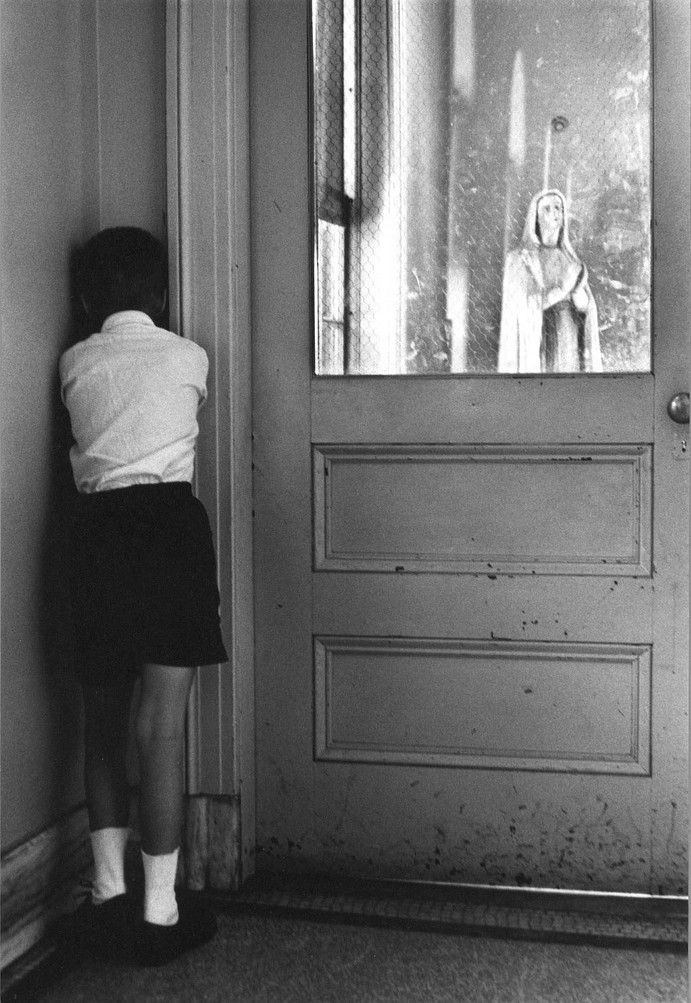 Punishment is the answer for the offense, after which the "criminal" must be forgiven. And be sure to make up before going to bed, remind the child that you appreciate and love him, no matter what.
Punishment is the answer for the offense, after which the "criminal" must be forgiven. And be sure to make up before going to bed, remind the child that you appreciate and love him, no matter what.
– It is not necessary to completely stop walking, but limiting them is quite acceptable. Late for home by 15 minutes in the evening? Tomorrow's walk is shortened by half an hour. For a while to deprive pocket money, gadgets, watching cartoons are also quite effective means. Do not forget about the effectiveness of rewards for success. And be sure to keep your promises.
Listen to your child and respect his opinion, do not allow unfair punishments because of irritation or misjudgment of the situation. In many ways, the child does not have to live up to your expectations. He is an independent person who gradually forms his own path in life. If, say, skipping a music school has become regular, this is a reason not to punish the child again and again, but to seriously talk about whether he wants to continue making music.
It is not worth punishing the desire for knowledge, which is natural for children, and for accidents that are beyond the control of the child, and even more so for things caused by the peculiarities of his physiology or psychology, such as enuresis. If your baby is emotionally labile or hyperactive, do not hesitate to contact a specialist who will help the child learn to control his behavior, and you can build the right line of communication with him.
Remember that children are very impressionable, and parents are the most important people in the world for them. Not only a banal spanking or moral pressure, but even a phrase casually thrown by a mother or a contemptuous look from a father can hurt the child's psyche so seriously that it will affect the formation of the personality and the entire future life of the child. To avoid children's resentment, fears and mental problems, watch not only the child's behavior, but also your own reactions and words. This will help you maintain a trusting and warm relationship with your children, even when they grow up.
